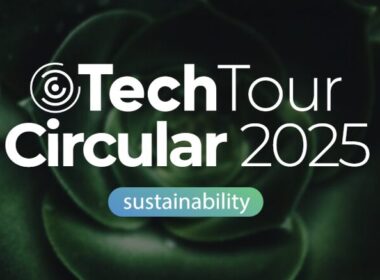Partner Opportunity Alert
Short summary
An Austrian SME developed a patented process and built a mobile plant to produce nanocellulose fibrils out of organic
materials at low costs. Thus fibrils are transfromed from a hig-priced niche product to a product for a broad range of
applications such as functional papers and packagings, inks and varnishes, ligthweight composites, medical implants,
builiding materials, cosmetics, aerogels or hygiene products. The company is seeking a commercial agreement with
technical assistence.
Full description
The SME innovative vision is to develop the most efficient, sustainable, economically viable, and environmentally friendly
production technology to fulfil the growing and promissing demand for nanocellulose fibrils for usage in various
applications.
Nanocellulose is a promising natural nanomaterial and has gained attention due to its advantageous properties that can
be used in several important areas. Nanocellulose fibrils are a fibrous nanoproduct, which is obtained from sustainable
organic material such as wood, plants, waste paper or other fibrous residues. The nanofibers have a diameter of 5-100
nm and a length of several μm.
PROBLEM DESCRIPTION
Currently nanocellulose fibrils are solely used in R&D and in some, high-priced special applications. The prize for fibrils
(10.000 – 100.000 € / t nanofiber) is too high to enable broader application if produced with state of the art technologies.
DESCRIPTION OF THE SOLUTION:
An industrial-sized mobile demonstrator plant is in operation that is capable to produce fibrils at costs of 2800 € / t,
enabling the use of fibrils for various applications. The plant is capable of producing 25kg otro / day (24h operation)
nanocellulose. The pulp (1-8 % density) is broken down into nanofibrils by a strong shear field and by high pressure. The
plant can also grind pulp and pre-treat it enzymatically to reduce the overall energy requirement.
APPLICATION AREAS:
Nanocellulose fibrils are used to optimize specific properties of products:
- Rheological properties (thickeners, flow inhibitors, binders)
- Strength properties (fiber composites, thin papers, high strength cartons)
- Barrier properties (gas-tight e.g. Tetra Pak – replacement of aluminium, plastic free transparent food packaging)
- Carrier material for other chemical substances, enzymes etc..
The fibrils can replace toxic substances or can enable applications where there are no other solutions.
Specific application areas
- Packaging (greaseproof, gasproof, biodegradable, transparent films, replacement of aluminium)
- Ink and varnish ( No vibration or impact caused cracking , no dripping, improved adhesion etc.)
- Car parts (bumpers, interior linings, recyclable composite components)
- Medical implants
- Building materials (wood composites, technical textiles, fiber-reinforced cement)
- Cosmetic products (sunscreens, wet wipes)
- Functional papers (release paper, wet-strength paper, high-strength cartons, thin paper)
- Aerogels for the oil and gas industry (temperature stabilized drilling fluids)
- Hygiene and absorbent products (diapers, skin-compatible plasters)
THE AUSTRIAN COMPANY IS LOOKING FOR manufacturers to implement reference projects at the production sites of potential partners. In this sense a commercial agreement with technical assistence is sought.
Contact : ANDREANI Barbara





